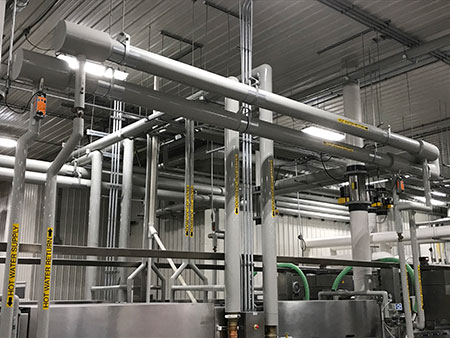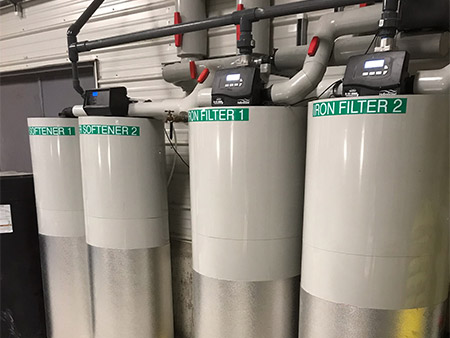Insulation Services
Diversified Insulation is a premium insulation company serving Burlington and surrounding areas in Southeastern Wisconsin. We’re a third-generation insulation contractor, which means expertise runs in the family.
Diversified Insulation is committed to providing reliable and long-lasting solutions and confidently stands behind our work. Our team undergoes extensive training on building science best practices and we’ve built a local reputation for our extensive knowledge and professionalism. When you choose us to improve your home or business, you’re investing in your comfort, energy efficiency, and indoor health.
Types of Insulation We Install
Not all types of insulation can be used in every application. Our team of qualified specialists will determine which option is best for your specific needs. We may use one, or a combination of, any of the following:
- Spray Foam Insulation - Offers superior air sealing and insulation properties.
- Blown-In Insulation - Ideal for attics and hard-to-reach spaces.
- Fiberglass - A cost-effective option for many applications.
- Mineral Wool - Excellent for soundproofing and fire resistance.
- Cellulose - An eco-friendly option made from recycled materials.
High-Performance Residential Insulation Services
Our high-performance residential insulation services focus on maximizing energy efficiency in your home. We use advanced materials and techniques to ensure your living space stays comfortable year-round while reducing energy costs.
Air Sealing
Air sealing involves identifying and sealing gaps and cracks in your home’s exterior to prevent drafts and heat loss. This service enhances your home’s energy efficiency and comfort by keeping conditioned air inside and unwanted air outside.
Attic Insulation
Attic insulation helps regulate your home’s temperature by preventing heat from escaping in winter and keeping it out during the summer. Proper insulation in the attic can significantly lower your energy bills, improve comfort, prevent ice dams, and more.
Basement & Box Sill Insulation
Basement and box sill insulation protects your home from cold drafts and moisture. By insulating these areas, you create a more comfortable living environment and help prevent issues like mold and mildew.
Crawl Space Insulation & Encapsulation
Crawl space insulation is essential for maintaining a comfortable temperature in your home and preventing moisture problems. Insulating this often-overlooked area can improve air quality and reduce energy costs.
Ductwork Insulation
Ductwork insulation prevents heat loss or gain as air travels through your home’s heating and cooling system. Properly insulated ducts ensure that your HVAC system operates efficiently, leading to lower energy bills and improved comfort.
Pole Barn Insulation
We specialize in insulating pole barns to maintain comfortable temperatures and protect stored items from moisture damage. This is especially important for the extreme weather we see in Southeastern WI.
Commercial Insulation
Our commercial insulation services help businesses reduce energy costs and create more comfortable environments for employees and customers. We work with various commercial buildings, including offices, retail spaces, warehouses, places of worship, and more.
Industrial Insulation
Our industrial insulation solutions improve energy efficiency, reduce operating costs, and ensure compliance with industry regulations.
Pipe & Ductwork Insulation
Our pipe and ductwork insulation services help prevent heat loss, reduce energy consumption, and protect against condensation in commercial and industrial settings.
Get an estimate for insulation services with our experts today. Call 262-321-4677 or contact us to get started.


Contact Diversified Insulation today!
(262) 321-4677
Distinctions

